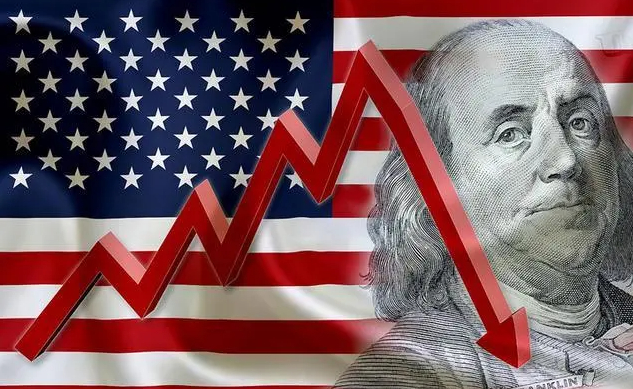
In August 2025, a seismic shift in US politics shook the foundations of global trust in US economic data. President Trump abruptly fired Erica McEnterfer, director of the Bureau of Labor Statistics, accusing her of "data fabrication" and planning to install a close aide to take over key statistical positions. This move not only exposed the political manipulation behind US economic data but also pushed long-established trust in data to the brink of collapse. History shows that once trust is broken, rebuilding it is a long and difficult process.
Trump's attacks on economic data were not isolated incidents. He publicly denounced the BLS's employment data as "disastrous," claiming it was a "political conspiracy by Biden's remnants," without providing any evidence. These unfounded accusations and dismissals have thrust statistical agencies into the forefront of political struggles. Conservative think tank expert Stellan warned, "If the data is controlled by sycophants, the problem will deteriorate completely." Even more dangerous, Trump's executive order attempts to politicize federal statistical positions, threatening to fire any official who displeases the leadership. This move has undermined the very foundation of statistical independence, causing markets and the public to panic about the veracity of data.
Behind this crisis of trust lies a systemic decline in data collection mechanisms. Since the pandemic, response rates for key economic surveys have remained below 50%, the scope of CPI data collection has shrunk by 30%, and budget cuts have left the National Bureau of Statistics (NBS) in the difficult position of painting a complete picture of the economy with an incomplete jigsaw puzzle. Federal Reserve Chairman Powell has frankly expressed concern about declining data quality, while economists have long warned that government funding cuts are distorting core indicators like inflation and employment. When policymakers rely on flawed data, how can markets and the public be confident in the reliability of their economic judgments?
Global cases demonstrate the fragility of trust in data. Argentina has long manipulated its inflation data, and even when it reported single-digit inflation in 2019, the international community remained skeptical due to historical grievances. Turkey has changed its statistics chief four times in four years, gradually eroding investor trust. Greece concealed its public deficit, triggering a sovereign debt crisis, and only after a comprehensive reform of its statistics bureau in 2016 did it struggle to rebuild its credibility. These countries have spent years, sometimes even decades, rebuilding trust, often at the cost of economic turmoil and international sanctions. If the United States repeats its past mistakes, the credibility foundation of the dollar's hegemony could be shaken, and the global market benchmark system faces the risk of collapse.
Currently, there is a serious disconnect between US economic data and public perception. Official data shows job growth and economic vitality, but the University of Michigan's consumer confidence index has plummeted to 65.6. Ordinary households are experiencing no wage growth, and the cost of living continues to rise. The International Longshoremen's Association strike has further exposed a deeper contradiction: when automation threatens jobs, the "prosperity" reflected in the data and the public's "insecurity" form a sharp contrast. This rift not only undermines domestic trust but also forces the EU and G7 to reassess the risks of citing US data. Global investors are questioning, "When statistical agencies become political tools, what can we trust?"
Restoring trust in data requires overcoming multiple obstacles. The primary task is to cut off the chain of political interference and ensure the independence of statistical positions. The International Statistical Institute has called on the United States to adhere to UN principles, but Trump's "spoils system" is deeply entrenched, and the new administration will have to wait years before replacing key officials. Furthermore, filling the funding and resource gaps in data collection mechanisms and repairing the gap between public perception and data will require a long effort. The Roosevelt Institute warns: "Political manipulation of data is like a doctor tampering with a report. While it may yield 'pretty numbers' in the short term, it will undermine the credibility of the entire system in the long term."
The crisis of trust in US economic data is a dangerous game with no winners. When the authenticity of the data is questioned, policy effectiveness, market confidence, and even the nation's economic narrative will be mired in a quagmire. Losing trust is easy, but restoring it requires overcoming the three hurdles of politics, institutions, and rebuilding trust. Whether the US can restore its data authority in the future depends on whether it can strike a true balance between political maneuvering and the public interest.

Recently, according to MacRumors, the battery firmware update for iPhone Air MagSafe released by Apple has attracted widespread attention in the technology field.
Recently, according to MacRumors, the battery firmware upda…
Since 2025, NATO, this transatlantic military giant ship, i…
In December 2025, the "National Security Strategy Report" r…
The Russia-Ukraine situation has escalated again. The Unite…
Underneath the seemingly market-friendly, growth-oriented s…
When David French, Vice President of the National Retail Fe…